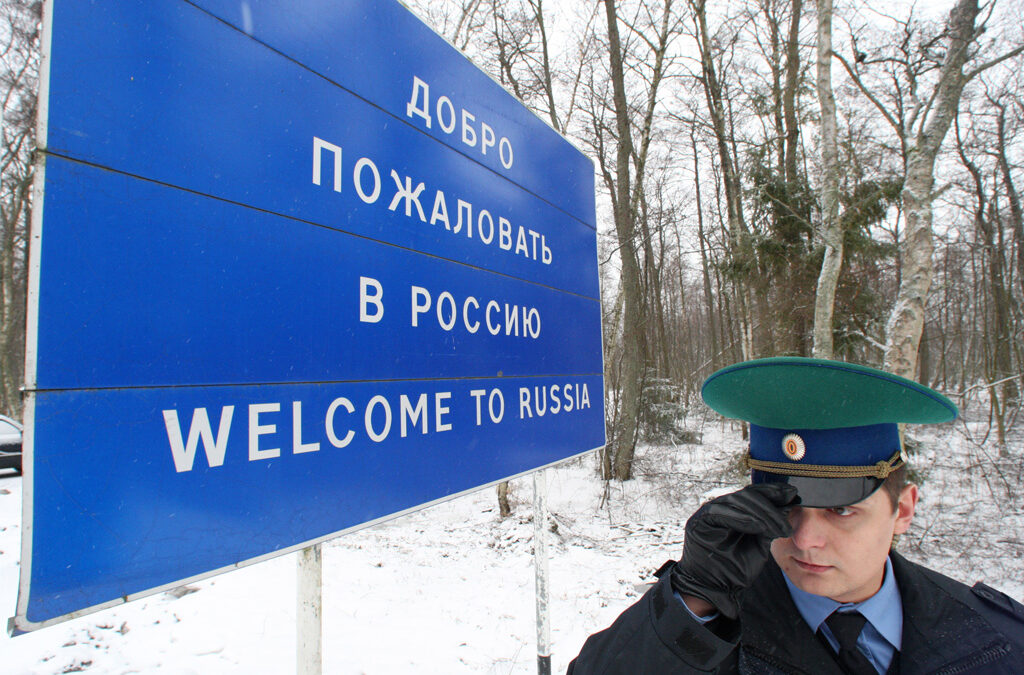Poland’s border crossings with the Russian exclave of Kaliningrad have seen a surge in traffic as Russians living in the EU use the route as a way to return to celebrate the New Year and Christmas, which in Russia falls on 7 January.
The traffic has caused some frustration among the ethnic Polish population in Kaliningrad, who note that, while Russians with EU-registered cars are allowed to cross the border, Poles who have Russian-registered vehicles cannot do so due to EU sanctions.
"Niemieccy Rosjanie" wracają do kraju Putina. Rekord na polskiej granicy pod Królewcem https://t.co/itAzCAcS05 pic.twitter.com/Mbo2tbFYjB
— Wirtualna Polska (@wirtualnapolska) December 31, 2023
During the five days between 23 and 27 December, a total of 17,014 people were checked at the two Polish road crossings with Kaliningrad, in Bezledy and Grzechotki, the Polish border guard told Notes from Poland. A total of 4,998 vehicles were cleared.
Those figures are as high as the traffic that the border would normally see in the space of a whole month in recent times. During the same period in 2021 the number of people crossing stood at 5,628 while in 2022 it was 9,792.
Because, following Russia’s invasion of Ukraine, there are no direct air connections from the EU to Russia, Russians wishing to travel there fly from Kaliningrad or Turkey. Russian website Klops.ru notes that doing through Kaliningrad, which can be reached via Poland, is the cheaper option.
Germany in particular has a large Russian population, and Klops.ru notes that “German-Russians leave their cars in long-term parking at Khrabrovo airport [in Kaliningrad] and from there they fly to Moscow or St Petersburg”.
However, while EU-registered vehicles can freely cross the Russian border, since September Poland has banned cars with Russian number plates from entering the country, implementing EU sanctions against Russia.
This has caused frustration among ethnic Poles who live in Kaliningrad and have cars registered there. They point out that people with Polish citizenship or a Karta Polaka (an official document confirming Polish ethnicity but not citizenship) cannot travel freely to and from Poland.
Witold Kowalczyk, a Pole living in Kaliningrad, told news website Wirtualna Polska that to enter Poland in December, he had to hire a foreign car with a Lithuanian driver. The price of such a journey can reach €400.
Poland has banned Russian-registered cars from entering its territory and announced that it plans to build a wall on its border with Russia https://t.co/cUWZjLpqTt
— Notes from Poland 🇵🇱 (@notesfrompoland) September 16, 2023
Kowalczyk says the local community is preparing a petition on the issue calling on Poland to create an exception for Polish citizens and people with the Karta Polaka. But the foreign ministry told Wirtualna Polska that Poland is “bound by EU restrictions and sanctions imposed on Russia”.
“The ministry is aware that the restrictions hit the holders of a Karta Polaka, citizens of Russia,” it said. “However, since they hold citizenship of the country currently posing the greatest threats to international security, they must be subject to the same regulations as other citizens of Russia.”
The border guard data provided to Notes from Poland indicates that, of the 17,014 people who crossed the Kaliningrad border between 23 and 27 December, only 824 (4.8%) were Polish.
Wirtualna Polska, citing data from the Russian customs service, says that during the rush of traffic in late December, 99% of those crossing the Kaliningrad border were either Russians with EU visas or Germans of Russian origin.
Poland's road authority has begun to remove the name of Russian exclave "Kaliningrad" from signs and replace it with the historical Polish name "Królewiec".
Last month, a government body advised that the change should be made, as we reported here: https://t.co/JUw85rdeYi pic.twitter.com/oRKxhvS62p
— Notes from Poland 🇵🇱 (@notesfrompoland) June 1, 2023

Notes from Poland is run by a small editorial team and published by an independent, non-profit foundation that is funded through donations from our readers. We cannot do what we do without your support.
Main image credit: RIA Novosti/Wikimedia Commons (under CC BY-SA 3.0)

Alicja Ptak is deputy editor-in-chief of Notes from Poland and a multimedia journalist. She has written for Clean Energy Wire and The Times, and she hosts her own podcast, The Warsaw Wire, on Poland’s economy and energy sector. She previously worked for Reuters.


















